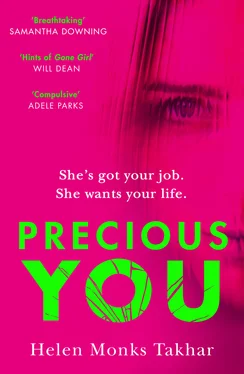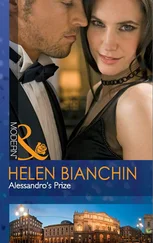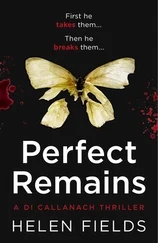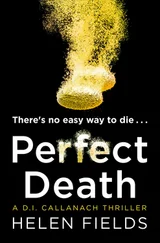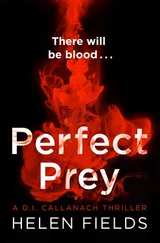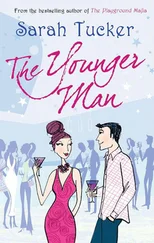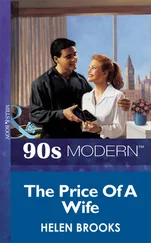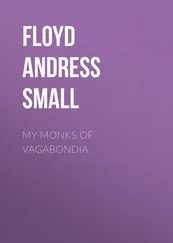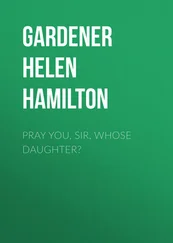1 ...6 7 8 10 11 12 ...17 Katherine
When I got home from the gym that night I looked at my flat again with new eyes: your eyes. Every inch of our 730 square feet had been maximised. When we planned to sell up, I’d encouraged an old mate to do a piece on the place for ‘Homes & Property’ in the Evening Standard . The headline: ‘The next big thing’, the sell: ‘How one budding novelist styled the life into her conversion in up-and-coming N4’. The piece detailed how I’d turned walls into bookcases, high ceilings into display mezzanines, bedroom stairs into storage, with feature walls created not by wallpaper but oversized Damien Hirst prints. With that article, I felt like I’d really done it. I’d left the old me at my mother’s farm where she belonged. I was no longer insignificant, no longer provincial. I was urbane. Successful. Someone you wanted to be. Someone you wanted to know. Now I barely remember being that person.
We paid for doing up the place with the rent from Iain’s flat in Holloway, which he owned outright, having the foresight to buy it practically on his credit card back in 1990. My friend had written that I was a journalist and ‘writer-in-waiting’ and it was almost true. Two literary agents had asked for the rest of my latest manuscript and only one had passed by the time of the interview. Iain, meanwhile, was still flying high as a senior copywriter for ad agencies and was about to land a gig on the writing team of a sitcom pilot. It seemed we were approaching some terrific threshold: the tantalising possibility of unqualified London success, so close we could taste it in the air and on each other. Our many and varied friends pumped us up.
We’d sell my place, use the equity to shoot for a four-bed fixer-upper on the edges of Highbury and use the Holloway rent to help pay for the works. Iain was in his mid-thirties by then, I was about twenty-six. Life was so good, we just didn’t realise it yet.
‘So, how was it, then? I’ve been waiting for the call all day!’ Iain shouted at me from the kitchen. It was just Iain and me, as you know. We were getting on for twenty years together when I met you. Those years, all the times we’d relished together, all those we’d survived as a couple, had stitched us into each other. That’s how it felt. Not every woman would let Iain be who he was, live the life he enjoyed, and not every man would fit to me. For one thing, I had always been adamant that I never wanted children. I suppose you could say I was a victim of neglect as a child. Iain was the first person I wanted to tell. I also told him I couldn’t risk putting someone else through anything like the experiences I’d gone through. It was too terrifying and, anyway, Iain knew we didn’t want sober lives where we’d have to lock down at six o’clock. Us with kids, who would we be? Not us at all. We agreed early on to leave the breeding to people less interesting than us and focus instead on having a fantastic life together, one that would allow our creative selves to thrive. I believed the narrative was holding.
‘Hello, gorgeous.’ I kissed Iain’s cheek, damp with steam from the pan he was hanging over.
‘Hello, you.’
He and I still looked broadly the same as we did in the pictures for the Evening Standard spread. I’ve always looked after myself. I run. I go to the gym. I run to the gym. I don’t wear leggings unless I’m at the gym. And it is only relatively recently I seem to have found myself in that specific category of invisible I didn’t really understand existed until, one day just before I got ill, I realised I hadn’t told a single slowing van driver to fuck off when I ran to the gym. I could now run all the way down Green Lanes wholly untroubled. Not a single beep. At first it felt liberating, this mid-life cloak of invisibility, for that purpose at least. But I suppose I never thought it would sweep over people like me, and so emphatically, especially when I wasn’t even old yet. Or perhaps I was.
A couple of weeks before I met you, I’d pulled out some short shorts I’d not worn since I was thirty-odd. I ran and waited for the cat calls, but nothing. It seemed white van men were able to age a woman by her calves and thighs alone, but what exactly was old about mine? I hated that I cared. Women like me were supposed to be better than this.
‘How was it?’ I repeated Iain’s question back to him. I’d been wondering what to tell him. I wanted to talk about you, but I also knew if I said what was really on my mind, I’d sound completely neurotic. But I did need to confide in him. Because he and I were best friends. Each other’s only friends.
We’d had many lives together. The one shortly after the Evening Standard spread is where our luck started to turn. London itself seemed to move against us. Iain’s pilot got pushed to midnight, the series dying quietly at birth. My latest manuscript, my final attempt at writing sustained prose in my own voice, was rejected by the second agent and then it seemed like I’d run out of things to say.
‘I’m wai-ting,’ Iain sang, his fingers squeezing the black plastic valve of boxed red he would have started on a couple of hours earlier, sending a drink for me gushing loudly into an expectant tumbler.
Soon after the sitcom was canned, he was made redundant. There was no justice in it, but as he passed forty, Iain was ageing into a professional leprosy. He could only get bits and bobs of freelance work. We started to lose a bit of confidence. By the time I’d been at Leadership for the best part of ten years, I was being paid an editor’s salary, but the fixer-upper crept up to £400,000, then £450,000, then suddenly £700,000 and after that, we stopped looking. We upped the rent on Iain’s place and decided to stay put at mine until the bubble burst. That first day I met you, we were still waiting for the pop.
‘Well, I’d say today certainly feels like the start of “An Exciting New Chapter”.’ I repeated the subject line of Gemma’s first all-staff email (and in gauche title case too) as I hung my jacket up. My eyes caught the poster that darkened my hall, hovering over our lives for the last five years. It was the real reason why I still lived in what should have been my bachelorette flat.
It was a one-off poster of The Film. The Film was supposed to be the start of An Exciting New Chapter for me and Iain. Perhaps Iain would tell you one version of the story, but let me tell you mine from where I think it starts.
As my father had the temerity to die on my mother when I was nine, it had been instilled in me at an early age that no one can save you from yourself, especially not a man. My mother spoke to me only when she sought to remind me that we are all truly alone and no white knight will come to your rescue. This is the one thing my mother and I agreed on. I had looked to my writing to save me, but as I got past thirty, something changed. I lost the will to write for myself. I thought about writing all the time, but the memory of my second manuscript being rejected for the final time, when I felt I’d so nearly become published, hurt too much to put myself through the process again.
The ideas didn’t come. I started a couple of drafts, but somewhere I’d lost whatever it is you inherently have, what I had for a short window in my twenties: the innate belief in what you say and the expectation your words will always find a willing audience. Because that’s how people like you carry yourself about the world, isn’t it? You think someone should always be primed, waiting to listen to you. Maybe not being able to write for myself was the very earliest sign of the beige clouds swirling. While my creative life was in stasis, Iain was still trying to make his happen. Then a way for me to ride his wave came along; a chance for him to save me from myself.
Читать дальше
